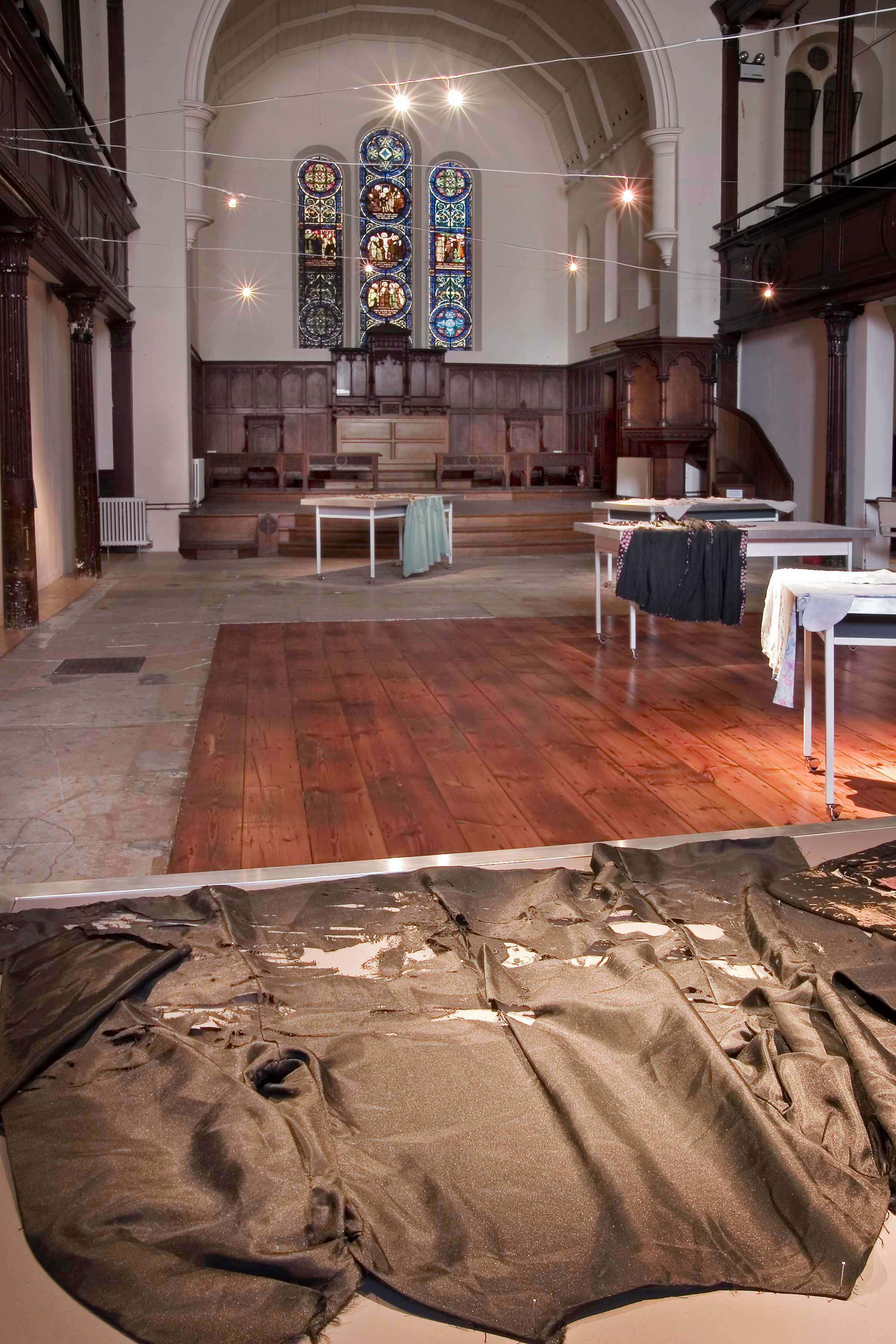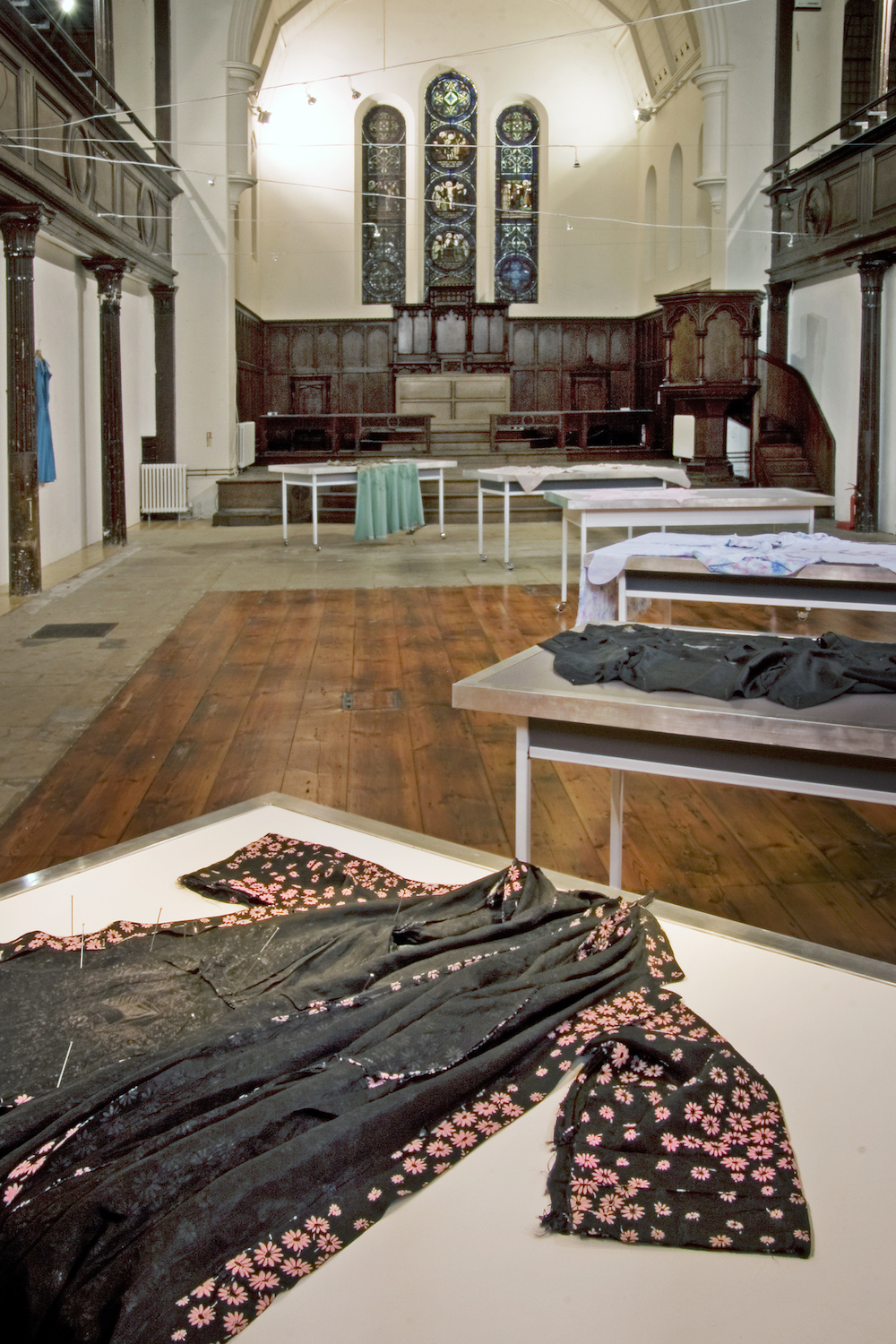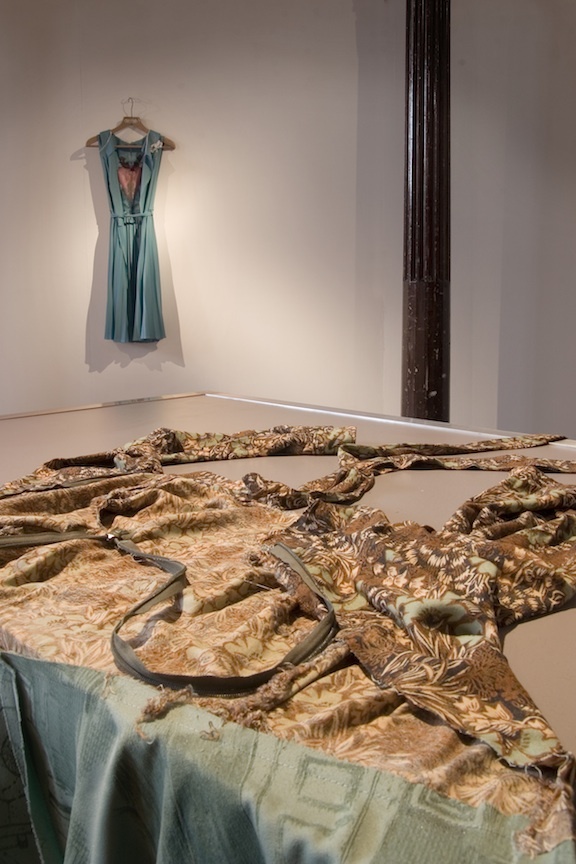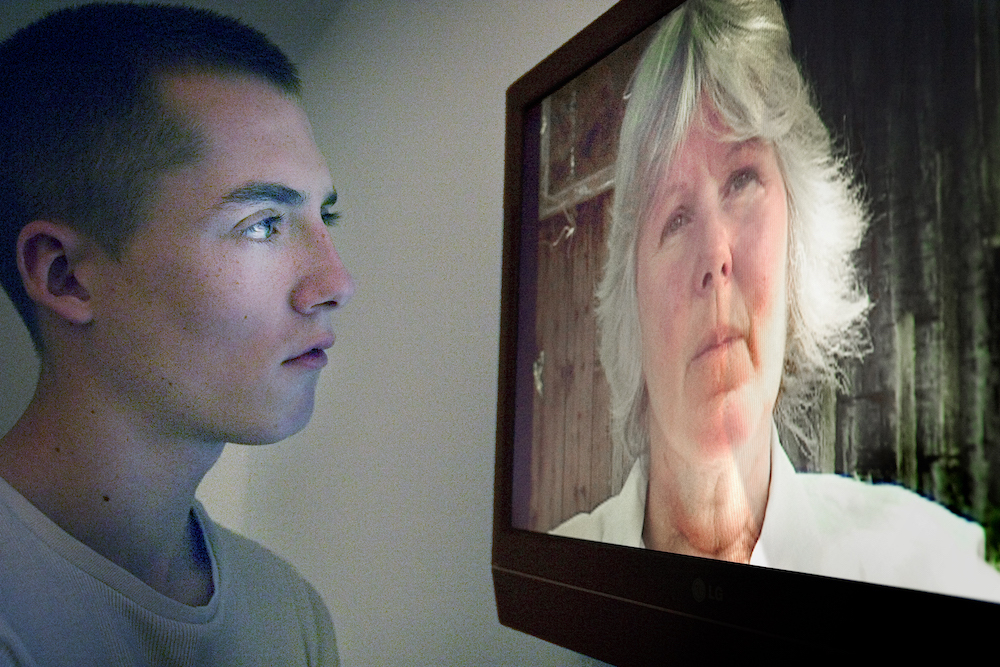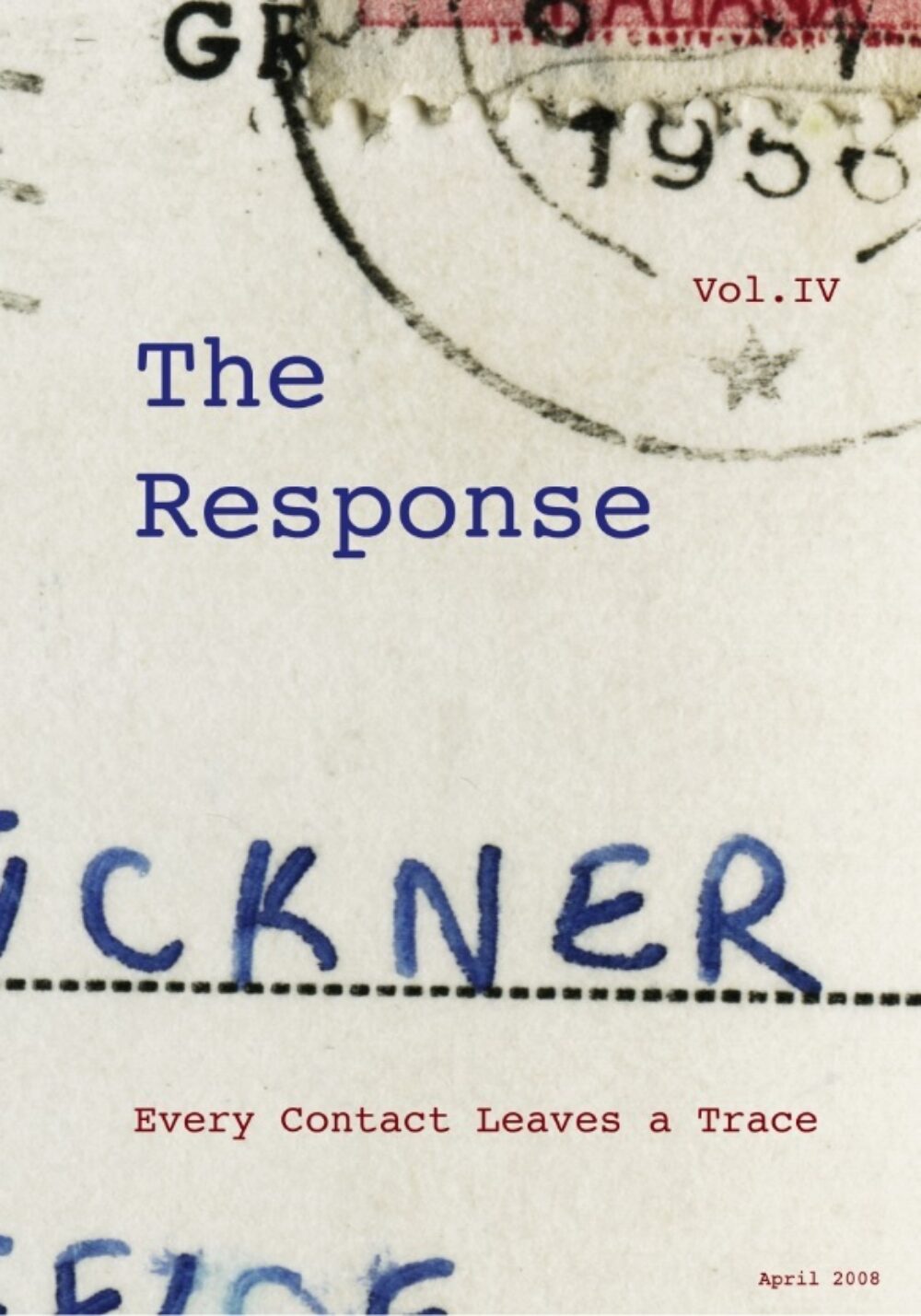Indelible
Shelley Goldsmith and Carole Hayman
Using Locard’s exchange principle as a starting point, this exhibition presented the work of two artists and two scientists who, both individually and in partnership, explored the indelible traces left behind by our interaction with the environment and other people.
Alison Fendley oversees the scientific analysis and interpretation of body fluid, DNA and other trace material in the context of serious sexual assault cases. Shelly Goldsmith, though her work with textiles and altered garments, imagined how the state of the wearer, be it physical or psychological, can be made visible in cloth. Although using different methods, and for very different reasons, both Fendley and Goldsmith explore aspects of the self in material evidence, and how the narrative of our lives may be read from this.
Anna Motz works to understand the roots of severe psychopathology in women who are violent against themselves and others, and explores the possibilities for professionals working therapeutically with these women. She explores the link between traumatic childhood experience and adult behaviour and was a key voice in Carole Hayman’s documentary film installation, No-one Escapes. Hayman’s work used the notorious case of serial killers Fred and Rosemary West to examine the psychological impact of extreme violence on those immediately connected with the case, as well as the a wider impact on society as a whole.
The exhibition itself sought to combine the diverse visual works and the professional scientific testimony to facilitate a comprehensive exploration of the physical, psychological and sociological implications of a serial killing.
About The Artist
Carole Hayman
Carole Hayman is a writer, producer and filmmaker. She was born in Kent, which has featured in her trilogy of novels, The Warfleet Chronicles. Her early work was with The Bristol Old Vic, The Royal Court and Traverse Theatres, from which she went on to become a founder member and first woman director of the Joint Stock Theatre Company. She was an Associate Director of the Royal Court Theatre, for which she directed many World Premieres. Until recently Carole was an Arts and Humanities Research Council Fellow at King’s College London.
Shelly Goldsmith
Shelly Goldsmith exhibits her work at major galleries and museums in Britain, Europe, USA and Japan. Her work is in many notable public collections including the Victoria & Albert Museum and The Whitworth, purchased most recently for the Haberdashers' Livery Company, London and the Crafts Council London.
Goldsmith is a Royal College of Art alumnus, is recipient of the prestigious Jerwood Prize and most recently highly commended in the Inaugural Vlieseline Fine Art Textile Award, she received an honorable mention in the London International Creative Award.
Shelly Goldsmith presents her work at conferences, seminars and symposiums (Tate Modern Whitechapel Gallery and National Gallery) and her work is extensively featured/cited in books and journals. Her latest authored essay is published in ‘Textile: The Journal for Cloth and Culture’. Shelly is ‘Reader in Textiles’ at the University for the Creative Arts, UK.
Her textiles practice explores the power of cloth and clothing to communicate ideas; textiles as a rich landscape for expression. She creates narrative based work that speaks of identity, fragility and loss. Often presented in an installation context rigorously crafted and visually stimulating her practice’s artistic endeavourprovokes reflection and curiosity. Goldsmith’s practice is underpinned by collaborations with professionals from the world of Psychiatry and Forensic Science and supported by a range of grants/awards from Arts Council England, Crafts Council of Great Britain and the Wellcome Trust etc.
